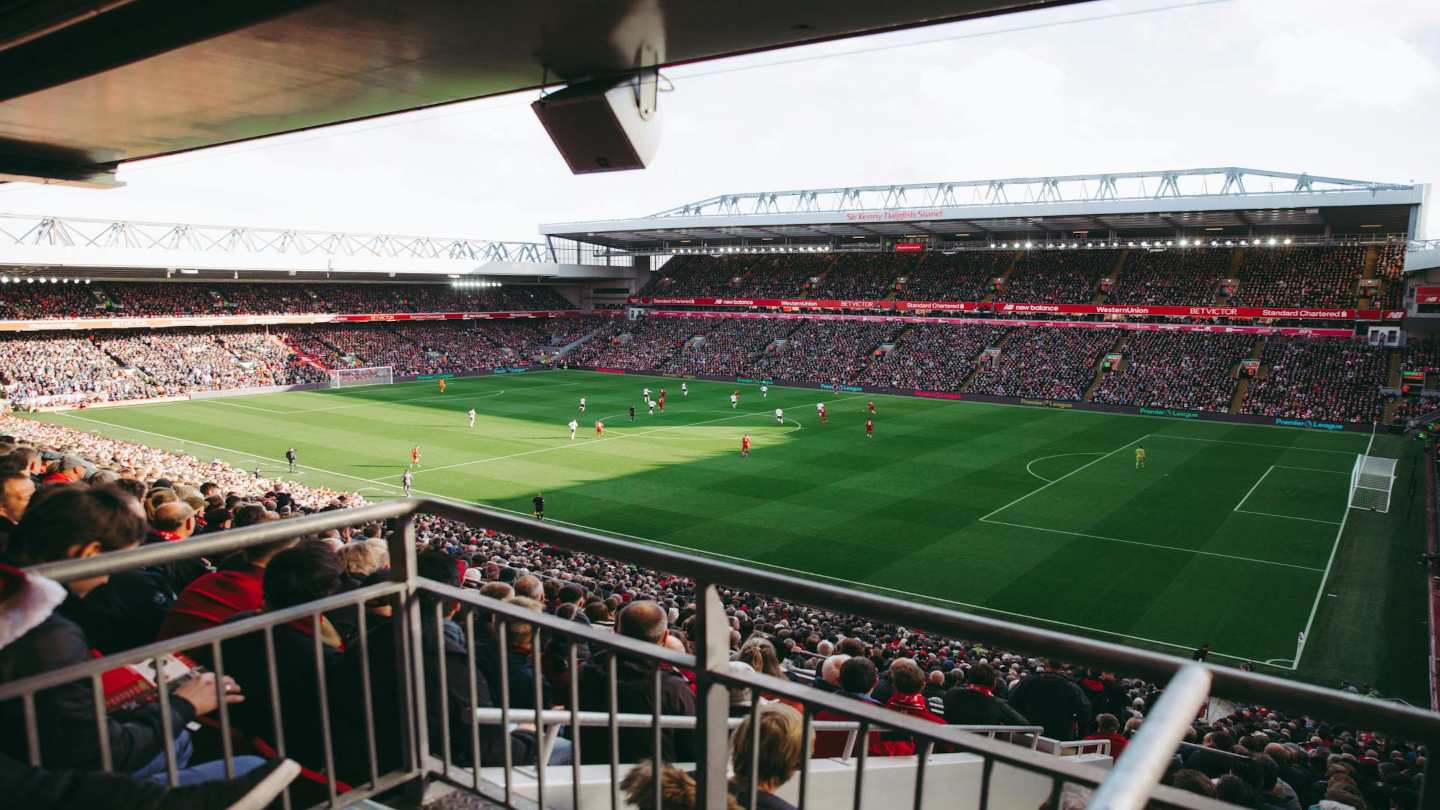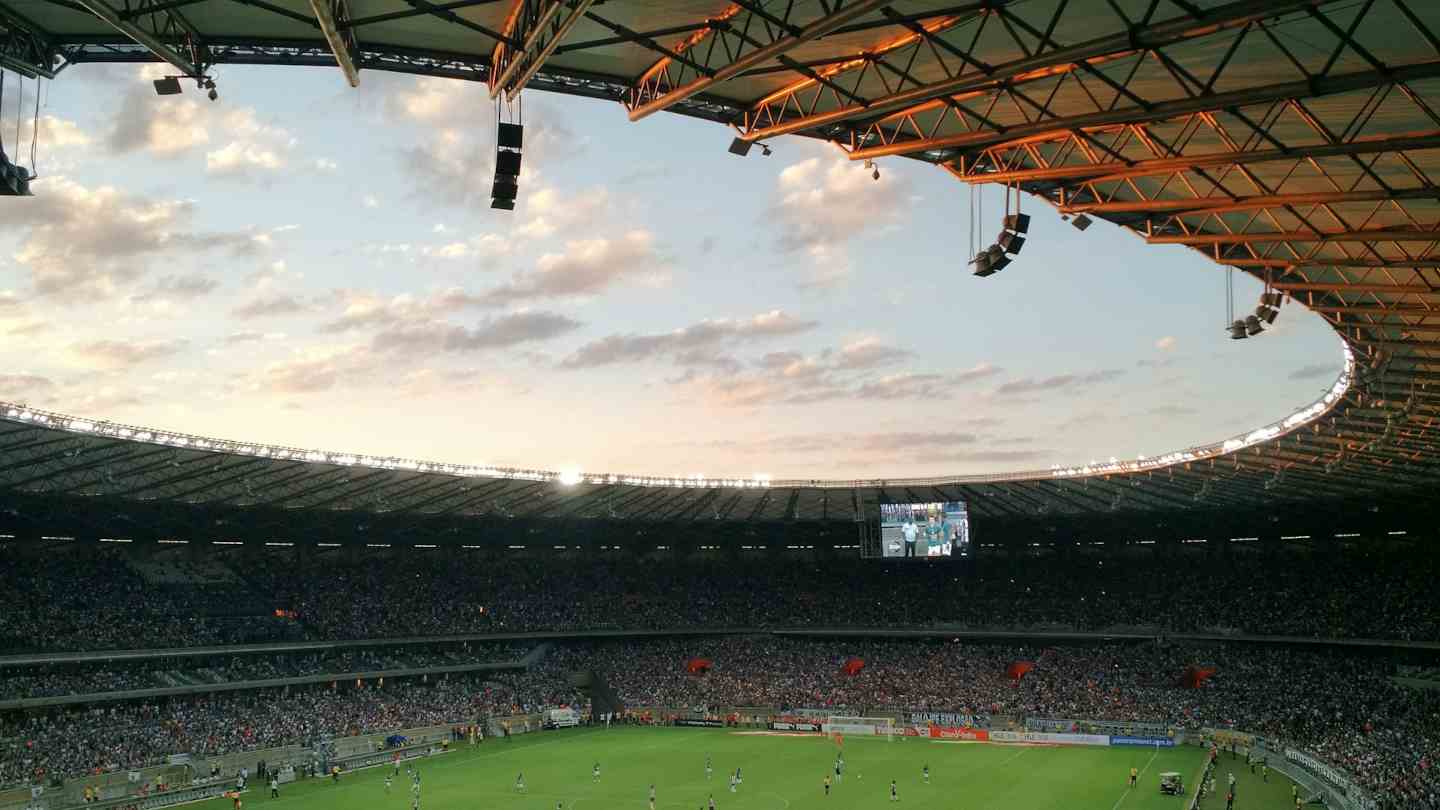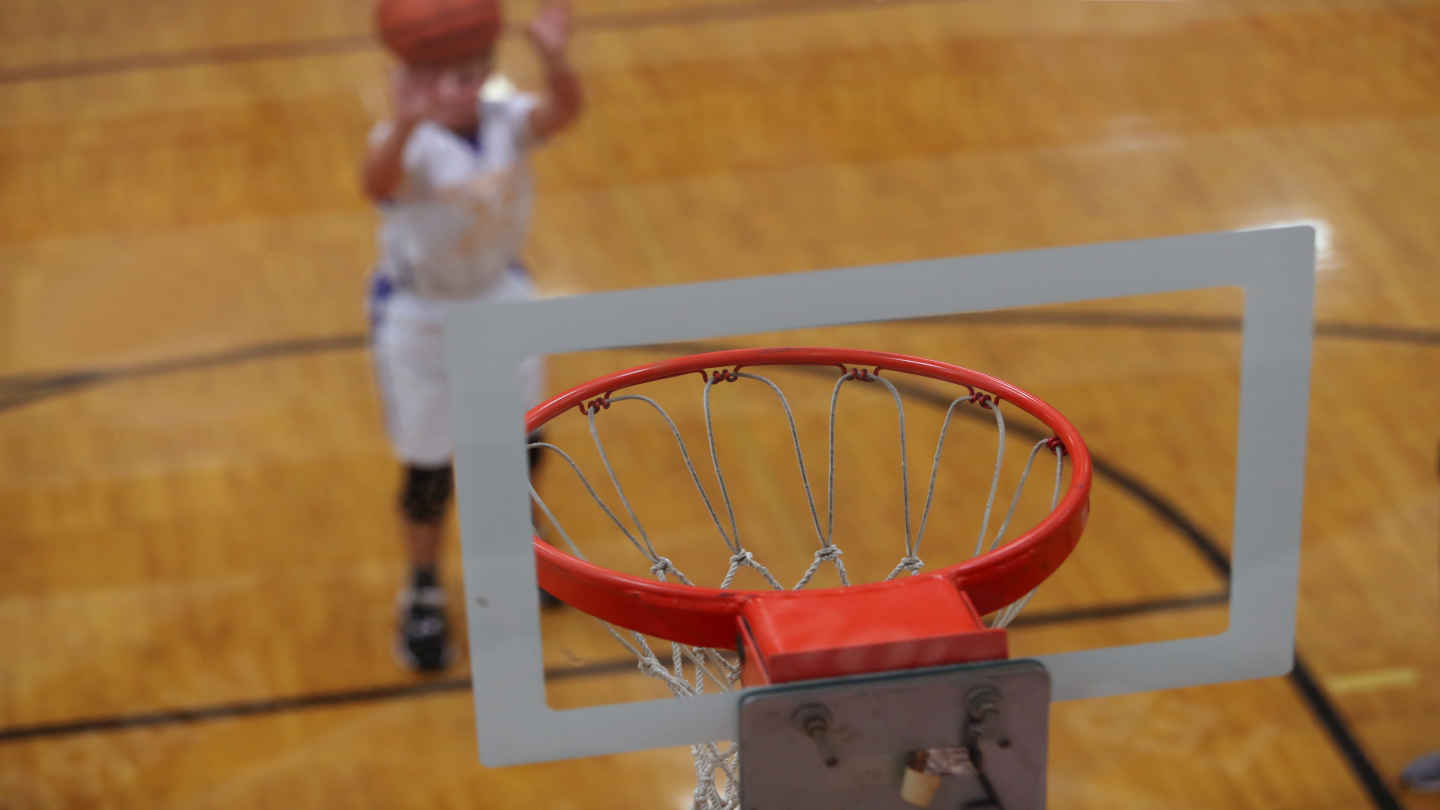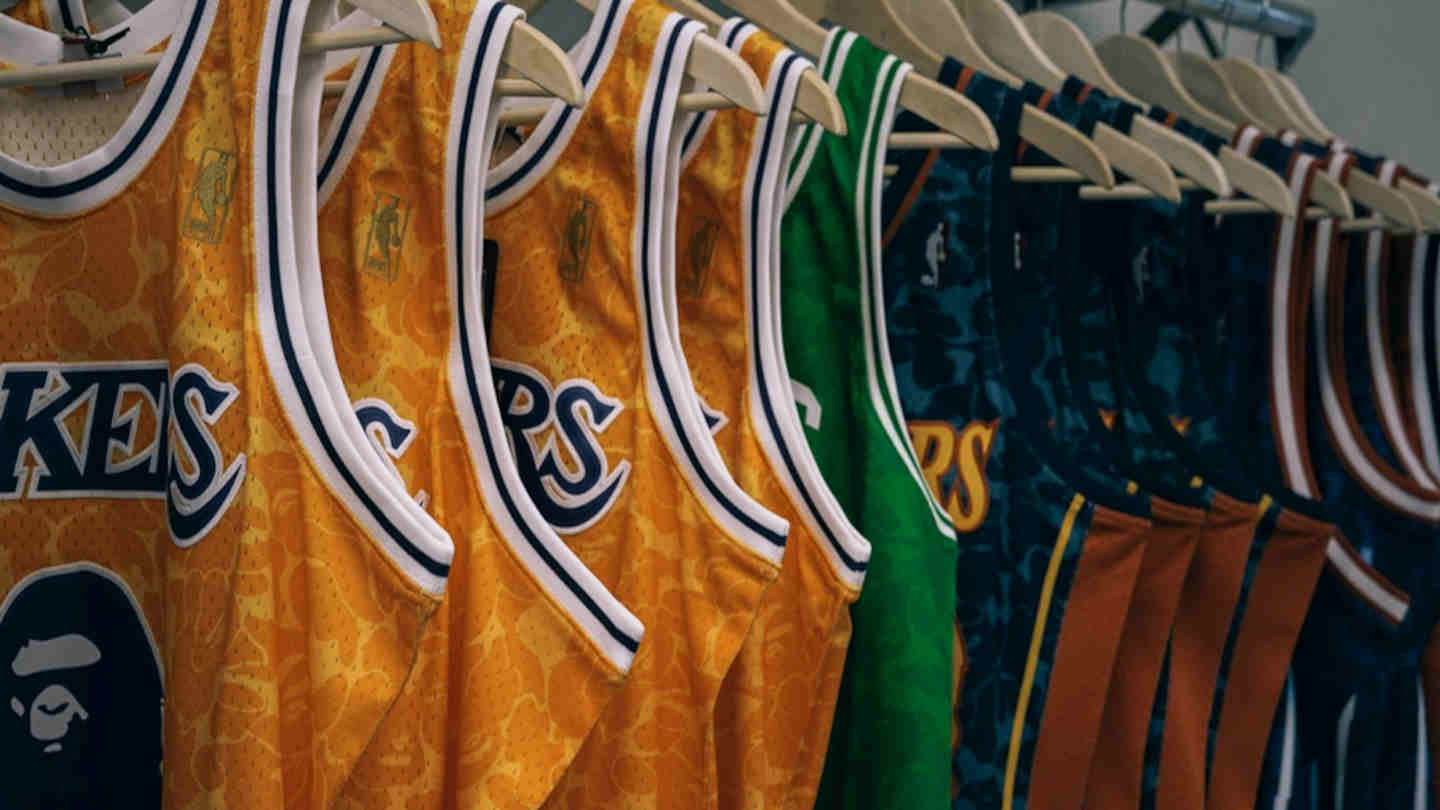Best Rebounders of All Time – Who Are Top Players In NBA History?
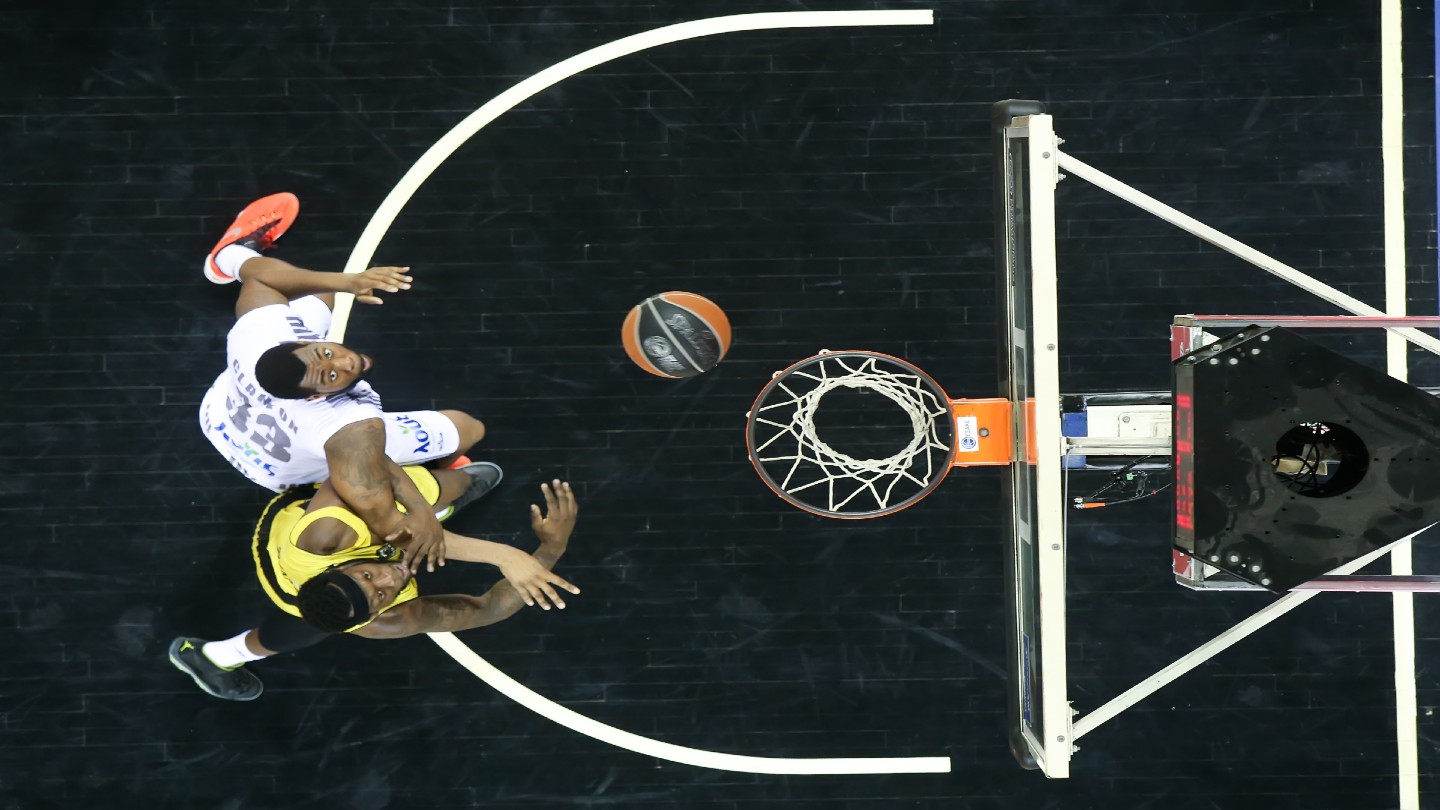
22 minutes
Last Updated: May 25, 2024
When making a list of the best rebounders of all time, there are a few things to consider. Unlike the title for the fastest soccer player in the world, there’s more than one number to consider here. From March Madness to the NBA Hall of Fame, rebounding plays a key role in winning.
Top 10 Rebounders in NBA History
When creating a list like this, it’s important to consider many factors. Players that have had longer careers will naturally have more career rebounds. Those are likely to end up among the NBA all-time rebound leaders.
Then there are others who have a high career rebounding average but are not the best rebounder of all time. If you’re losing games but getting your numbers, you can’t be considered the greatest rebounder of all time.
And then there are changes in the NBA landscape, size, and positional difference. We took all of these variables into account and created the definitive list of the best rebounders in the NBA.
Who is Best NBA Rebounder of All Time?
In case you didn’t know, the 60s and 70s of NBA basketball are known to hoard a lot of NBA records. That’s because the average NBA pace back then was a lot higher.
Teams would routinely run up and down the court, hosting shots, and stacking statistics that seem unobtainable by today’s standards. For instance, NBA teams in the 1970s attempted on average 92 shots per game. Those resulted in 47 rebounds per game and an average pace of 106. Keep in mind these are all averages, and the outliers racked up even more impressive numbers.
In the 1990s and 2000s, teams attempted on average 83 and 80 shots per game respectively. This was because the average pace dropped to 93 and 91 in those decades. Which is why NBA teams on average collected 42 rebounds per game. This is 5 rebounds per game less on average across 2 decades.
Height also plays a major role in this category. The average height for an NBA player back in the 1950s and 1960s was 6’4″ (193 cm). The power forward position in this time frame on average measured below 6’8″ (203 cm). Only in the 1980s did this position start to average over this height. At the same time, on average NBA centers in the 1950s and 1960s measured under 6’10” (208 cm) until the 1974 NBA season.
This is a cautionary tale that adds a lot of perspective to this discussion. And explains why 9 of the 10 NBA career rebound leaders played in these eras. Nobody is denying that Wilt Chamberlain and Bill Russell were great rebounders. They were exceptional for their time. But mostly because they were 7-foot giants in a much faster game.
Dennis Rodman
- Career Stats: 6,683 points (7.3 PPG), 11,954 rebounds (13.1 RPG), 1,600 assists (1.8 APG)
- NBA Teams: Detroit Pistons (1986–1993), San Antonio Spurs (1993–1995), Chicago Bulls (1995–1999), Los Angeles Lakers (1999), Dallas Mavericks (2000)
- Accolades: 5× NBA champion (1989, 1990, 1996–1998), 2× NBA All-Star (1990, 1992), 2× All-NBA Third Team (1992, 1995), 2× NBA Defensive Player of the Year (1990, 1991), 7× NBA All-Defensive First Team (1989–1993, 1995, 1996), NBA All-Defensive Second Team (1994), 7× NBA rebounding champion (1992–1998)
If you know ball, you know Denis Rodman is the best NBA rebounder of all time. It’s as simple as that. When you start a discussion about the best rebounder in NBA history, there are a lot of things to consider. And Dennis Rodman has everything covered, making him the best rebounder of all time.
Unlike many of the NBA all-time rebound leaders, Dennis Rodman wasn’t a center. He also wasn’t 7 feet tall. And he also didn’t play in the 60s and 70s, when the pace was much higher. Instead, Rodman competed in the era of NBA basketball worst suited for breaking rebounding records. But that didn’t stop him from doing it.
Rodman’s journey into the NBA began when he was selected as the third pick in the second round (27th overall) in the 1986 NBA Draft. Joining the Chuck Daly-coached “Bad Boy” Detroit Pistons was a blessing for the young Rodman. Known for their hard-nosed approach to basketball, with Isiah Thomas and Joe Dumars in the guard positions, the Pistons needed a Swiss army knife.
The Worm
And they got it in Rodman who quickly established himself as a defensive stalwart and an elite rebounder, thanks to his raw athleticism and relentless energy. His unique ability to anticipate the trajectory of shots, coupled with his tenacity and willingness to sacrifice his body, allowed him to outmaneuver taller opponents on the boards from day one.
Rodman had a hard time gaining the trust of a team and coach with championship aspirations, but his hard-working approach made it happen. Dennis came off the bench for the first 3 years of his career, up to the Pistons 1989 NBA championship.
Since then Rodman became a league-wide phenomenon, for better or for worse. He became a 7 time NBA rebounding champion from 1992 to 1998 showcasing his dominance on the boards and his commitment to winning. Despite the drama, Dennis Rodman was essential to the Pistons’ back-to-back championships and the Bulls’s second 3 peat after MJ came back.
With multiple DPOY awards and rebounding titles to his name, Dennis Rodman is one of the greatest NBA players of all time. His 13.3 rebounds per game career average is good for number 10 on the NBA all-time rebound leaders list. Given the circumstances, it’s fair to consider him as the greatest rebounder of all time and best rebounder in NBA history.
Dennis Rodman was the ultimate disruptor throughout his career and never was that more impactful than Game 6 of the 1992 Finals where he racked up a Finals record 11 Offensive Rebounds helping the Bulls secure the title despite MJ scoring just 22 on just 5-19 from the field. pic.twitter.com/ci3c7N0avE
— NBAStatGuy (@NBAStatGuy_) September 2, 2023
NBA All Time Rebound Leaders
When trying to create the best rebounders in the NBA list, you have to consider the NBA all time rebound leaders. By default, this list includes tall centers who managed to play a lot of games. But there is more to it. You don’t become one of the best rebounders in the NBA by chance. So these are the greatest rebounders of all time.
Wilt Chamberlain
- Career Stats: 31,419 points (30.1 ppg), 23,924 rebounds (22.9 RPG), 4,643 assists (4.4 apg)
- NBA Teams: Philadelphia / San Francisco Warriors (1959–1965), Philadelphia 76ers (1965–1968), Los Angeles Lakers (1968–1973).
- Accolades: 2× NBA champion (1967, 1972), NBA Finals MVP (1972), 4× NBA Most Valuable Player (1960, 1966–1968), 13× NBA All-Star (1960–1969, 1971–1973), NBA All-Star Game MVP (1960), 7× All-NBA First Team (1960–1962, 1964, 1966–1968), 3× All-NBA Second Team (1963, 1965, 1972), 2× NBA All-Defensive First Team (1972, 1973), NBA Rookie of the Year (1960), 7× NBA scoring champion (1960–1966), 11× NBA rebounding champion (1960–1963, 1966–1969, 1971–1973), NBA assist leader (1968), Most Points in One Game (100), Most Rebounds in One Game (55)
On the top spot, we have the best rebounder in NBA history according to the numbers. Wilt Chamberlain is number 1 on the NBA career rebound leaders list for a multitude of reasons. His 23,924 total career rebounds are a record that’s unlikely to get broken. Something synonymous with Wilt Chamberlain in general, as he still holds 72 NBA records.
Chamberlain’s NBA journey began when he was selected as the first overall pick in the 1959 NBA Draft by the Philadelphia Warriors. From the moment he stepped onto the hardwood, it was clear that his rebounding prowess would set him apart.
His rookie season saw him averaging a staggering 27.0 rebounds per game. As impressive as it is, this is a feat that he would outdo his following year. He averaged an NBA all-time record of 27.2 rebounds per game for the entire 1960-61 NBA season.
The Big Dipper
As great as Wilt was a basketball player, he’s probably the greatest athlete specimen to ever wander the Earth. This guy entered the NBA at 23 years old as a 7 ft 1 in (2.16 m) tall and 258 lb (117 kg) avid track and field athlete. He reportedly high jumped 6 feet, 6 inches, ran the 440 yards in 49.0 seconds, and long jumped 22 feet.
This imposing physical profile and towering presence made Chamberlain’s rebounding ability truly exceptional for that era. While it’s true his numbers are a bit inflated due to the height of his opponents and the pace of the game, that’s no reason to discredit the work he put in.
He still holds 21 different rebounding records like career total rebounds, and rebounds per game for a season and career. Which is quite understandable considering Wilt Chamberlain was an 11 time NBA rebounding champion. Collecting misses from the Logo Jerry West who was one of the best NBA SG’s of all time sure helps.
The original David vs Goliath story of the NBA consisted of Russell’s defensive prowess and shot-blocking abilities which proved to be a worthy opponent to Chamberlain’s offensive dominance and rebounding finesse.
Chamberlain’s lack of postseason success, particularly against Russell’s Celtics, has been a sore eye for many. It wasn’t until he joined the Los Angeles Lakers in 1968 that Chamberlain finally secured his first NBA title. But as a 4 time NBA MVP and owner of multiple NBA records, Wilt Chamberlain is rightfully considered the greatest rebounder of all time.
Wilt Chamberlain scoring 100 points 🔥🔥 https://t.co/s0DtVJdHHO pic.twitter.com/CVQJroEfGq
— McClung Muse (@MacMcClung_Muse) July 9, 2023
Bill Russell
- Career Stats: 14,522 points (15.1 ppg), 21,620 rebounds (22.5 rpg),4,100 Assists (4.3 apg).
- NBA Teams: Boston Celtics (1956–1969)
- Accolades: 11× NBA champion (1957, 1959–1966, 1968–1969), 5× NBA Most Valuable Player (1958, 1961–1963, 1965), 12× NBA All-Star (1958–1969), NBA All-Star Game MVP (1963), 3× All-NBA First Team (1959, 1963, 1965), 8× All-NBA Second Team (1958, 1960–1962, 1964, 1966–1968), NBA All-Defensive First Team (1969), 4× NBA rebounding champion (1958, 1959, 1964, 1965).
Eleven championships in a 13-year career is the defining trait of Bill Russell. The first African-American NBA superstar is unanimous with winning at the highest level. Every time Bill Russell stepped on the court, fans were in for a defensive masterclass and some ungodly rebounding figures.
Standing at 6 ft 10 in (2.08 m) tall, with a 7 ft 4 in (2.24 m) wingspan, Russell’s shot-blocking and man-to-man defense were a major boost for the Boston Celtics. He was the second pick in the 1956 NBA Draft when the St. Louis Hawks traded his rights to the Boston Celtics. Quickly becoming one of the best rebounders in the NBA, leading the league in rebounding with 19.6 boards per game on average.
What made Russell stand out from the rest was his ability to read the trajectory of shots, anticipate rebounds, and establish post position made him exceptional on the boards. Russell’s immediate impact took the Boston Celtics to their first-ever NBA finals, helping them secure the championship in a highly competitive Game 7.
11x NBA Champion
This would be the first of many to come for the Celtics, on the back of Russell’s defense and rebounding ability. They won 8 straight NBA championships from 1958 to 1966, with Russell leading the NBA in rebounding 5 times during his 13 seasons. Having one of the best NBA coaches of all time certainly helps.
In 10 of his 13 seasons in the NBA, he averaged at least 20 RPG, with 12 consecutive seasons with more than 1000 rebounds. To this day he remains second all-time in both total rebounds and rebounds per game while holding the record for most rebounds in a half with 32. The 5 time NBA MVPs career-high of 51 rebounds in a single game is second all time only to Wilt’s 55.
This should surprise nobody considering Bill Russell was one of the best college rebounders of all time. During his time at the University of San Francisco, Russell won back-to-back NCAA championships in 1955 and 1956. He averaged 20.7 points and 20.3 rebounds per game in his 79 collegiate games, making him a box-out specialist from the get go.
Bill Russell is near the top of multiple NBA all-time rebound leaders lists for a reason. His grit and intensity on the boards made him a persona synonymous with winning basketball games. I guess it’s not that hard to do when you’re one of the best NBA centers and the best rebounder in NBA history.
Bill Russell casually jumping over a guy for a layup pic.twitter.com/2Lvn1ns4hu
— Rare NBA Pictures (@RareNBAPics) March 6, 2015
Kareem Abdul Jabbar
- Career Stats: 38,387 Points (24.6 ppg), 17,440 Rebounds (11.2 rpg), 5,660 Assists (3.6 apg)
- NBA Teams: Milwaukee Bucks(1969–1975), Los Angeles Lakers (1975–1989)
- Accolades: 6× NBA champion (1971, 1980, 1982, 1985, 1987, 1988), 2× NBA Finals MVP (1971, 1985), 6× NBA Most Valuable Player (1971, 1972, 1974, 1976, 1977, 1980), 19× NBA All-Star (1970–1977, 1979–1989), 10× All-NBA First Team (1971–1974, 1976, 1977, 1980, 1981, 1984, 1986), 5× All-NBA Second Team (1970, 1978, 1979, 1983, 1985), 5× NBA All-Defensive First Team (1974, 1975, 1979–1981), 6× NBA All-Defensive Second Team (1970, 1971, 1976–1978, 1984), NBA Rookie of the Year (1970), NBA All-Rookie First Team (1970), 2× NBA scoring champion (1971, 1972), NBA rebounding leader (1976), 4× NBA blocks leader (1975, 1976, 1979, 1980).
Up next on our best rebounders in the NBA history is another all-time great center. Kareem Abdul-Jabbar retired from the NBA as the greatest player to ever grace the hardwood. He managed to obtain his legendary status by being amazing at almost every aspect of his game. People mostly remember him for his unguardable hook shot. But they fail to realize he’s third on the NBA all-time rebound leaders list.
After winning 3 NCAA titles and college player of the year awards in as many years, Kareem was on his way to the NBA as the first pick in the 1969 NBA draft. The Milwaukee Bucks were lucky enough to land the generational talent, becoming one of the best rebounders in the NBA immediately.
Kareem won the ROY award and followed it up with his first MVP, first scoring title, and first NBA championship the following season. His 16 rebounds per game were a sign of things to come, as he would go on to average double-digit rebound numbers in 12 NBA seasons.
Lew Alcindor
During his 20-year career as a center, Abdul-Jabbar won 6 NBA championships, 6 MVP awards, and 2 Finals MVP awards. His continued excellence allowed him to be a 19-time NBA All-Star and a 15-time All-NBA Team member, with 11 NBA All-Defensive Team selections.
Apart from holding the NBA’s career scoring record for 39 years, Abdul-Jabbar is also ranked third all-time in both rebounds and blocked shots. And the proud owner of the longest NBA win streak in history.
Being able to dominate both ends of the floor for 2 decades helped Kareem become one of the greatest basketball players ever. While also making him one of the oldest NBA players ever. His graceful and efficient style of play on the offensive end was eye watering. Playing with one of the greatest NBA point guards in Magic Johnson certainly helped.
He had a keen understanding of angles, positioning, and timing, using his long frame to snatch boards and alter shots on every possession. While his measurements of 7 ft 2 in (2.18 m) and 225 lb (102 kg) certainly improved his chances of success, you don’t become one of the best rebounders in the NBA by chance.
Kareem Abdul-Jabbar’s skyhook is a thing of beauty.
Not only was it virtually impossible to defend, it’s one of basketball’s most efficient shot types that left you shocked when it missed.
Below are his skyhook makes in four games from the Lakers ‘77 postseason. Enjoy: pic.twitter.com/cXI9OIj14m
— Ian Quinn (@ianpagequinn) August 28, 2023
Moses Malone
- Career Stats: 29,580 Points (20.6 ppg), 17,834 Rebounds (12.2 rpg), 1,889 Blocks (1.3 bpg)
- NBA Teams: Houston Rockets (1976–1982), Philadelphia 76ers (1982–1986), Washington Bullets(1986–1988), Atlanta Hawks (1988–1991), Milwaukee Bucks (1991–1993), Philadelphia 76ers (1993–1994), San Antonio Spurs (1994–1995)
- Accolades: NBA champion (1983), NBA Finals MVP (1983), 3× NBA Most Valuable Player (1979, 1982, 1983), 12× NBA All-Star (1978–1989), ABA All-Star (1975), 4× All-NBA First Team (1979, 1982, 1983, 1985), 4× All-NBA Second Team (1980, 1981, 1984, 1987), NBA All-Defensive First Team (1983), NBA All-Defensive Second Team (1979), ABA All-Rookie Team (1975), 6× NBA rebounding leader (1979, 1981–1985)
It wouldn’t be a top NBA rebounders of all time list without a Malone on it, so we figured to go with the older one. After all, you don’t end up fifth on the NBA all-time rebound leaders list by chance. That “Chairman of the Boards” nickname was well deserved. Every time a shot in the 80s went up, you knew Moses Malone was bound to put in some work on the glass.
After becoming the first player in modern professional basketball to enter directly from high school, Moses Malone earned ABA All-Star and ABA All-Rookie honors during his inaugural 1974 ABA season. Aged just 19 at the time with a 6 ft 10 in (2.08 m) frame and a somewhat lacking 215 pounds (98 kg), Moses Malone played at the power forward position before moving to the center role.
After the NBA/ABA merger, Malone quickly made a name for himself with the Houston Rockets. In his first playoff run, he set an NBA playoff record by gathering 15 offensive rebounds in an overtime Game 2 win of the 1977 Eastern Conference Semifinals versus the Washington Bullets.
Chairman of the Boards
The following year he would notch his first All-Star selection, and follow that up with his first MVP award and rebounding title the next season. He averaged a career-high 17,7 rebounds per game during that 1978-79 season. But 2 years later, his reign of terror would start.
From 1980 to 1985, Moses Malone would lead the NBA in rebounding for 5 consecutive seasons. In that time frame, he made his first NBA Finals appearance, won his second MVP award, and won the 82-83 NBA Championship and Finals MVP on top of being a perennial All-Star and All-NBA selection. Playing with Doctor J who’s a top 10 NBA SF of all time certainly helps.
Malone holds the NBA record for most consecutive games played without fouling out at 1,212. He’s the owner of the top 4 best offensive rebounding seasons in NBA history and holds the single-game record with 21 offensive boards in a single game. That in itself is a great argument for the best rebounder of all time.
Moses Malone was an absolute force in the painted area. Take two minutes and watch Moses do his thing back in ‘83. pic.twitter.com/haeSEsNXJJ
— Hubie Talks Hoops (@HubieTalksHoops) August 27, 2023
Dwight Howard
- Career Stats: 19 485 Points (15.7 ppg), 14 627 Rebounds (11.8 rpg), 1676 Assists (1.3)
- NBA Teams: Orlando Magic (2004–2012), Los Angeles Lakers (2012–2013), Houston Rockets (2013–2016), Atlanta Hawks (2016–2017), Charlotte Hornets (2017–2018), Washington Wizards (2018–2019), Los Angeles Lakers (2019–2020), Philadelphia 76ers (2020–2021), Los Angeles Lakers (2021–2022)
- Accolades: NBA champion (2020), 8× NBA All-Star (2007–2014), 5× All-NBA First Team (2008–2012), All-NBA Second Team (2014), 2× All-NBA Third Team (2007, 2013), 3× NBA Defensive Player of the Year (2009–2011), 4× NBA All-Defensive First Team (2009–2012), NBA All-Defensive Second Team (2008), NBA All-Rookie First Team (2005), 5× NBA rebounding leader (2008–2010, 2012, 2013), 2× NBA blocks leader (2009, 2010)
The Dwight Howard slander needs to stop! Seriously, we are talking about arguably the best rebounder of all time. Yeah, we know it’s fun and cool to disrespect Howard since Kobe did it first. Clown him all you want for his social media antics and his legacy in the Taiwanese basketball league. But nobody can deny that Dwight Howard is a top 75 NBA player of all time.
Howard entered the NBA straight out of high school, becoming the first pick in the 2004 NBA draft. Similarly to Lebron, Howard was an amazing physical specimen from the get-go. At 6 ft 10 in (2.08 m) with a 265 lb (120 kg) frame that could jump out of the gym, Howard was a menace on the glass from his first game.
He became the youngest player in NBA history to average a double-double in the regular season, with 12 points and 10 boards in his rookie season. This made him the youngest player in NBA history to average at least 10 rebounds in a season and the youngest NBA player ever to record at least 20 rebounds in a game.
Superman
In his 8 years with the Orlando Magic, Dwight Howard was the definition of Superman. He played 351 consecutive games to start his career, missing a total of 8 games in his years there. Apart from being available every single night, Dwight also put the work in. Every season he incrementally improved, scoring more points, grabbing more rebounds and blocking more shots.
This resulted in an NBA record of 3 consecutive DPOY awards for Howard, along with 5 rebounding titles. Dwight led the Magic to their best-ever season and an NBA Finals berth against Kobe Bryant and the LA Lakers.
In the lockout-shortened 2011 NBA season, he posted a career-high of 14,5 rebounds per game. Not only was this number obscene in that era of NBA basketball, but he was also struggling with a back injury. That offseason Dwight had surgery and was traded to the LA Lakers, where the deterioration of his legacy would start. He still led the league in rebounding but was still dealing with back issues.
He spent 3 frustrating years in Houston with James Harden, as his numbers dipped across the board. His stops with the Charlotte Hornets and Atlanta Hawks were very productive considering his minutes played. But he spent the last 3 years of his NBA career as a role player, most notably with the 2020 LA Lakers who won the NBA championship in the bubble.
Dwight Howard finished his NBA career ranking tenth on the NBA all-time rebound leaders list. He’s also top 15 in rebounds per game, blocks per game, and total blocks. Nobody can deny he was a generational talent and among the best rebounders in the NBA during his prime. Many Orlando fans argue he’s the greatest rebounder of all time, and they might be right.
Dwight Howard’s resume: NBA champion, 3 DPOYs, 8-time All-Star, 5 All-NBA First Teams, 5-time All-Defense, 5-time RPG leader, 2-time BPG leader pic.twitter.com/iIiwZTE7mG
— KiLBJJ ʰᶦᵐ (@KiLBJJ) August 21, 2023
NBA Rebounding Percentage Leaders
Nowadays, we have a lot more advanced metrics to better analyze the game. Not only does this make basketball one of the most profitable sports to bet on, but it also gives us a clearer image of the game. One of those advanced metrics worth mentioning here is Total Rebound Percentage.
Basically, it’s an estimate of the percentage of missed shots a player rebounded while he was on the floor. Looking up the leaderboard for this category on Basketball Reference shows us a few names most NBA fans would be familiar with.
Andre Drummond
- Career Stats: 10337 Points (13.2 ppg), 9963 Rebounds (12.7 rpg), 1036 Assists (1.3)
- NBA Teams: Detroit Pistons (2012–2020), Cleveland Cavaliers (2020–2021), Los Angeles Lakers (2021), Philadelphia 76ers (2021–2022), Brooklyn Nets (2022), Chicago Bulls (2022–present)
- Accolades: 2× NBA All-Star (2016, 2018), All-NBA Third Team (2016), 5× NBA rebounding leader (2016, 2018–2021)
A few days ago, Andre Drummond showed up on a podcast claiming he was the greatest rebounder of all time. The media rightfully crucified him, but he does make a point. He might not be a HOF-level player like he claims. But when it comes down to grabbing boards, Andre Drummond is up there with the NBA all-time rebound leaders.
According to Basketball Reference, Andre Drummond has pulled down 24.85% of all rebounds that occurred during his 22,000 minutes on an NBA floor. That’s a quarter of all rebounds, both defensive and offensive. For perspective, Dennis Rodman, our choice for the greatest rebounder of all time, is number 2 on that list with 23.44 TRB%.
According to advanced analytics, Andre Drummond is the most efficient and best rebounder of all time. So how did we get here? Andre Drummond was the ninth pick in the 2012 NBA Draft for the Detroit Pistons. At 6 ft 11 in (2.11 m) and measuring around 279 lb (127 kg), Drummond wasn’t among the heaviest NBA players ever but had the body to bang on the glass from the start. He averaged 7.9 points, 7.6 rebounds, 1.0 steals, and 1.6 blocks in 20.7 minutes per game during his rookie campaign.
20 Rebound Games
Since then, Drummond has registered 8 consecutive seasons averaging over 13 rebounds per game. In 5 of these, he led the league in rebounding. With a career-high 16 rebounds per game during the 2017-18 NBA season, Andre Drummond deserves more recognition.
Unfortunately for him, he was stuck in a horribly mismanaged Detroit Pistons organization that’s still searching for success. He is often discarded because he put up big numbers on bad teams, without much winning happening. If he played alongside one of the best NBA ball handlers, who knows what his career could have been?
Drummond is 10th all-time with 12.7 rebounds per game, ahead of many notable players already mentioned on this list. Considering he doesn’t play as much anymore, it’s unlikely he’ll ever play enough games to match the other NBA all-time rebound leaders. Despite the lack of longevity, Andre Drummond’s peak as a rebounder was as great as you can be.
He has 88 games of at least 20 or more rebounds, which is second all-time behind only Dennis Rodman. His 44 20-20 games are also number 2 to Dwight’s 51. This isn’t as impressive as a quadruple double, but it’s still really hard to do against NBA players.
He might not qualify for the best rebounder in NBA history title, but he’s probably the best rebounder of all time as it purely pertains to grabbing boards at a high clip. He was head and shoulders above the best rebounders in the NBA for nearly a decade, and we won’t let it go unnoticed.
Andre Drummond says he’s the best rebounder ever 👀
(Via thecomfortablepod / h/t @RTNBA )
— NBACentral (@TheDunkCentral) September 1, 2023
Rudy Gobert
- Career Stats: 8531 Points (13,4 ppg), 7933 Rebounds (11,6 rpg), 894 Assists (1,2 apg)
- NBA Teams: Utah Jazz (2013–2022), Minnesota Timberwolves (2022–present)
- Accolades: 3× NBA All-Star (2020–2022), All-NBA Second Team (2017), 3× All-NBA Third Team (2019–2021), 3× NBA Defensive Player of the Year (2018, 2019, 2021), 6× NBA All-Defensive First Team (2017–2022), NBA rebounding leader (2022)
Another player whose greatness is taken for granted by a lot of NBA fans these days is Rudy Gobert. It’s true that modern NBA standards have taken the game away from lumbering bigs such as Drummond and Gobert. If you can’t shoot the three-ball or score in the paint, you become a one-dimensional specialist.
That tag might apply to Andre Drummond but that’s not the case with Rudy Gobert. Rudy entered the NBA as the 27th pick in the 2013 NBA draft by the Denver Nuggets, before being immediately traded to the Utah Jazz.
Standing at 7 ft 1 in (2.16 m) tall with a wingspan of 7 ft 9 in (2.36 m) and a standing reach of 9 feet 7 inches, Rudy Gobert is one of the tallest NBA players ever. He was exceptional during his time on the court, but he had a lot to learn and injuries slowed him down in his first 3 years.
During the 2016-17 NBA season he made his first All-NBA appearance and led the league in blocks. Over the next 5 years, he would become a 3-time DPOY winner and lead the league in rebounding in 2021.
Stifle Tower
His rebounding numbers might pale in comparison to other NBA all-time rebound leaders. But considering he really started playing after 2016, his contributions so far have been amazing. His 11.7 rebounds per game for his career would rank him top 20 all time, if he had enough games to qualify.
His 21,77 TRB% also ranks him 3rd all-time amongst NBA players. This means that once Rudy gets on the court, he grabs the 3rd most rebounds in NBA history. Sharing rarified rebounding air with Dennis Rodman and Andre Drummond is worthy of praise, even if you’re not the best rebounder of all time.
He’s tied for third-most DPOY awards in NBA history with 3, he is a four-time All-NBA Team member, six-time All-Defensive First Team member, and three-time NBA All-Star. Fans love to clown the Minnesota Timberwolves franchise for making a hefty overpay when trading for him. But let’s not act like Rudy Gobert isn’t a great player and one of the best rebounders in the NBA currently.
Fun Fact: Rudy Gobert is one of two All Stars ever to go undefeated vs Kobe Bryant 🐍 in his career pic.twitter.com/794fj3cXiL
— Stifle-Tower27 (@Stifle_Tower27) August 19, 2023
NBA Most Rebounds in a Game Record
The current NBA record for most rebounds in a game belongs to the great Wilt Chamberlain. This exceptional rebounding performance occurred on November 24, 1960, when Chamberlain and his Philadelphia Warriors faced off against the Boston Celtics. Not only does this record hold to this day, but it also came against Chamberlain’s arch rivalry with fellow NBA legend Bill Russell.
Best Offensive Rebounder of all Time
The title of best offensive rebounder of all time goes to Dennis Rodman. While looking at the numbers, Moses Malone comes at the number one spot in nearly every category. Total career offensive rebounds and offensive rebounds per game, being most notable.
But Dennis Rodman played in a much slower era of NBA basketball. There were fewer shots going up and fewer rebounds coming down. Rodman has the best offensive rebound percentage in NBA history with 17.2, which is ahead of Moses Malone at number 3.
All of this combined with Rodman’s obvious height disadvantage at “6 ‘7”, proves that he is in fact the best rebounder in NBA history.
Best Defensive Rebounder of all Time
The best rebounder in NBA history on the defensive side must be Dwight Howard. Dwight ranks fifth all-time in total defensive rebounds and defensive rebounding percentage. This means not only does he have the body of work to warrant the title, but he was also very proficient at it. He’s first all-time with 8.4 defensive rebounds per game, making him one of the best rebounders in the NBA.
All images credit to NBA






